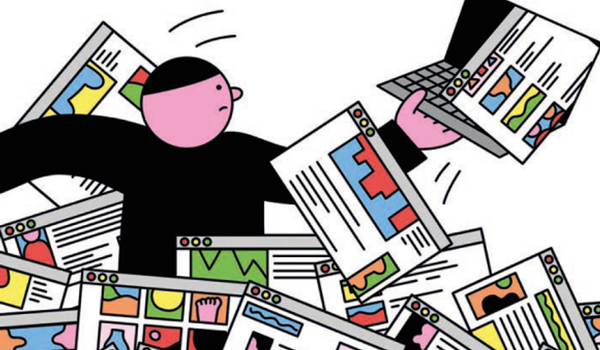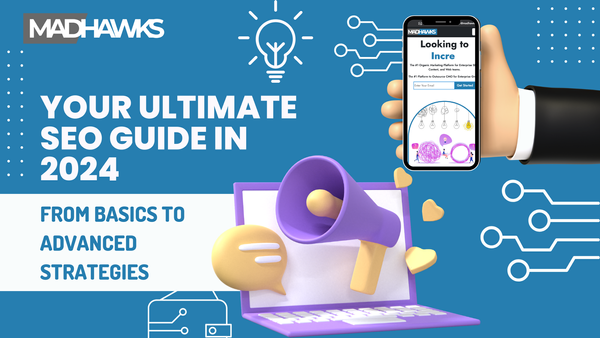If I brought AI technology back to ten years ago...

In the past decade, we've seen several stages of new media development. If we had AI back then, how might our projects have turned out? Now, let’s take a trip down memory lane together and imagine the possibilities.
1. Introduction
This is my second post, and unlike my previous one, where I looked back to my last job before starting my own business, this time I’m going five years further back, to when I graduated from university. My first job was as an art editor at a magazine. Over the past ten years, I’ve transformed from a traditional media person to a new media entrepreneur, completing the metamorphosis of a traditional media person into a new media butterfly...
Throughout my ten years in the industry, whenever a new platform or technology emerged, there was always some middle-aged man on the internet saying, “Every industry deserves to be redone with xxx.” Every time I saw this, I would quickly scroll past or close the window, muttering a few choice words.
As time passed, I found myself becoming what I once disliked. Every decision I made in the past shaped who I am today. I don’t regret it, but I often wonder what I would do differently if I could go back in time. If I had AI technology back then, who would I have become? With this possibility in mind, I plan to write a story with my ten-year-younger self, like the protagonist of a rebirth novel!
Over the past ten years, the new media industry has evolved through three distinct eras: the text era, the short video era, and now the AI era. Today, let's dive back into the beginnings of our dreams!
2. The Text Era
The Four Major Blogs Period
Background
2011 was a year when Weibo comedians thrived. As various monetization models matured, new media began to be recognized as an industry. At that time, Weibo referred not just to Sina, but to the four major blog platforms under major domestic portals.
What I Was Doing Then
I was in my junior year of college, with plenty of free time. Without smartphones, while my classmates were playing games in internet cafes, I was browsing Weibo. Influenced by top Weibo comedians, I started running my own account...
Back then, the internet speed couldn’t support extensive photo or video sharing. Most people used Weibo as a diary or emotional outlet, but I was writing and editing jokes. I categorized jokes in an Excel file and used third-party software to synchronize them across the four major blogs.
My best-performing blog was on Sohu, with over 50,000 followers, likely because I used an avatar of a popular actress.
My major was computer multimedia (game animation design), and while running a blog wasn't directly related, my skills in image processing helped. However, this also took a lot of my time, making me weaker in areas like video editing and special effects, otherwise, I’d be a “hexagonal warrior” now!
If I Could Bring AI Back
I would rush to my younger self in the internet cafe... and head to the nearby lottery shop to pick a number...
Then I’d tell my younger self, “You can use AI to organize jokes for you and even train a personalized language model with your joke library. Use the saved time to catch up on your professional courses! Remember, every skill in your field, like image processing, photography, videography, editing, special effects, animation, can shine on your new media path!”
While others are still fighting hand-to-hand, you’d be flying with a sword, using “sword qi” to “kill invisibly.” It would be a feat that changes their worldview! Imagine how happy today’s university students must be. So, if you’re still a student, don’t just use GPT to write papers!
The Two Weibo and One App Period
Background
On August 23, 2012, WeChat public accounts were officially launched. Several executives from our city's broadcasting group sensed the opportunity, quitting their jobs to start their own businesses. In an era when smartphones weren’t fully popular, they ran local public accounts as "family workshops," creating our city's early new media landscape.
Among them were future bosses, people who would allow their editors to plagiarize my articles, and current business rivals... in short, they were all obstacles.
What I Was Doing
"From the south came a young man named Cheng Yi~" The following year, I left my internship company to join the media industry.
At that time, enterprise internet marketing included "two Weibo and one app" as standard, which were Weibo, WeChat public accounts, and app clients. Traditional media companies started recruiting new media professionals, leading to me being the only one in the magazine company with new media skills, but also the least educated, often leading to situations where non-professionals led professionals...
Without AI to free us from repetitive tasks, new media technical specialists or operators' jobs were close to being miscellaneous. For instance, an article needed different formats for Weibo, WeChat, and app publication, requiring three separate layouts and multiple rounds of review before publishing...
The company also conducted traditional email marketing and promotions. Each email could only be sent to 10 recipients, and we had thousands of contacts from the provincial journal association. Promotions meant unpaid weekend work... I had to burn digital magazines onto CDs and distribute them in neighborhoods, tourist spots, and markets.
Despite multiple requests for overtime pay, I wondered how long it would take to get promoted and raise my salary just by layout design and CD burning.
If I Could Bring AI Back
In 2012, "iPartment" was popular. I would invite my younger self to watch it, and when the character Zhang Wei talked about burning CDs at a law firm, we would laugh, then cry...
After venting, I’d say, “AI can free you from repetitive tasks like sending emails and fixed-format layouts, all done online. Zhang Wei might have Zhuge Dali in the future, and you’ll have GPT!”
Martial arts novel protagonists often get bullied before a stroke of luck: Duan Yu finds "Bei Ming Divine Skill," Zhang Wuji unearths "Jiu Yang Divine Skill," Linghu Chong learns "Absorbing Star Technique." Everyone has a rebound moment! Hang in there, clouds always have a silver lining!
The Peak of WeChat Public Accounts
Background
In 2015, public accounts reached their peak, and doing new media meant running public accounts. In our city, new media company salaries for the same position started surpassing traditional media, causing a talent migration.
What I Was Doing
I valued a merit-based industry atmosphere and growth potential, choosing a newly established new media company, starting from scratch to manage their public account...
A company based on public accounts mainly focuses on one or a few accounts, publishing 1-2 articles daily. I was part of the content department, responsible for producing cultural content.
Most official account articles were adapted from literary classics or niche cultural knowledge, catering to the tastes of cultural enthusiasts. People with strong interests in certain fields don’t mind lengthy articles. The challenge was turning a witty comedian style into cultural science popularization without directly copying from encyclopedias!
Each article needed images, review, layout, publication, and promotion. We usually sourced free images from public libraries, sometimes editing and beautifying them with Photoshop, adding watermarks.
I self-reviewed for typos, grammatical errors, and used fixed templates with third-party editors for beautification. Promotion involved tracking WeChat indexes (akin to trending searches) to ride the waves and gain followers.
My success came from three main factors:
- A rich “stockpile of valuable content,” translating complex theoretical knowledge into engaging science articles;
- Writing skills, using anecdotes and stories to make articles lively;
- Passion and patience, willing to spend time perfecting each article.
If I Could Bring AI Back
I’d bring a well-prepared PowerPoint to my younger self: “Did you know? AI can help you efficiently complete tedious tasks like image sourcing, layout, proofreading, even writing, using just outlines or keywords. It saves a lot of time and effort.”
I’d explain how to use AI tools, like:
- Image recognition and generation for automatic sourcing;
- Intelligent layout tools for quick formatting;
- Language models for article generation and proofreading.
My younger self would be astonished and excited: “Really? Then I can have more time to learn and improve myself!”
Yes, that’s the convenience and potential AI brings. By leveraging these tools, you achieve twice the results with half the effort. In the future, you might not need any tools, just a brain-computer interface to turn thoughts into words and images, creating richer content!
Conclusion
From the text era to the short video era, and now the AI era, each era brings unique opportunities and challenges. As new media professionals, we must continuously adapt, learn, and master the latest technologies and tools to stay competitive. In the past decade, I’ve experienced and learned a lot, and in the next decade, I believe AI will bring us even more possibilities. Let’s look forward to and embrace this hopeful and challenging era together!



